In the past, we steered away from applying oils to skin because we thought they all clogged pores and caused breakouts. Similar to the passing of the “low fat” diet phase, we now know not all oils are bad. Just like there are good fats for our inner nourishment, there are good oils to use externally for our skin health. Below we discuss oils for clear skin and the different benefits that individual oils have.
Not all oils are the same, so you want to choose the right oils for clear skin. And, please be sure to only use extra virgin, cold pressed oils and ensure they are clean, pure and not rancid.
Here are my favorite 10 oils to use topically on your skin:
- Argania Spinosa (Argan) Kernel Oil is extracted from the kernels of the Moroccan Argan Tree. Argan oil is rich in vitamin E, fatty acids (vitamin F), carotenoids like beta-carotene and phytosterols. Thanks to its antioxidant content, it can ward off aging signs such as wrinkles and sagging. It supports the natural mild acidity of the skin, imparts softness, and protects your skin against dryness. Argan oil is a non-comedogenic, anti-inflammatory and regenerative agent, so it can also be used with oily and acne-prone skin types. It is often recommended for various skin irritations, scars, stretch marks and sunburns. Argan oil is also known to protect and heal dry, brittle hair and is great for nails too.
- Cocos Nucifera (Coconut) Oil is one of nature’s best moisturizers and emollients thanks to its medium chain triglycerides that keep the skin smooth, protected and hydrated. It works well to remove makeup and surface build-up. Coconut oil is rich in capric, caprylic and lauric fatty acids, which have strong disinfectant and antimicrobial properties. This oil is good for several skin disorders such as acne, psoriasis, and eczema. Some keys for using coconut oil on acne-prone skin are using a pure, extra virgin source and combining with other ingredients designed to diminish breakouts. Unlike other oils, coconut oil does not easily become rancid so it can stay fresh for a longer time and is one of the better oils for clear skin.
- Helianthus Annuus (Sunflower) Seed Oil is a light colored oil, native to Eastern Europe, the Mediterranean region and North and Central America, and comes from the seeds of the sunflower plant. The oil provides a rich source of unsaturated linoleic and oleic fatty acids and Vitamin E. Sunflower Seed Oil is soothing, calming and caring for the skin. It is thinner than some of the other oils so it works well in combination to make other oils easier to apply to the skin.
- Prunus Amygdalus Dulcis (Almond) Oil is pressed from the nut kernels of the Sweet Almond tree. This fine, nearly colorless and odorless oil is especially mild and gentle. It is extremely well tolerated by the skin and is easily absorbed. Due to its high content of essential fatty acids, it protects the skin from drying and improves the skin’s barrier function, keeping it smooth and supple. This is another great oil to use in blending as it’s one of the better oils for clear skin.
- Vaccinum Macrocarpon (Cranberry) Seed Oil is extremely light-weight, non-comedogenic oil and is able to readily penetrate the skin without clogging it. It is rich in antioxidants, vitamin E (tocotrienols and tocopherols), vitamin A, phytosterols and phospholipids. It is the only available carrier oil with a natural ratio of Omega 6 (linoleic), Omega 3 (alpha-linolenic), and Omega 9 (oleic) fatty acids. It also aids in the absorption and utilization of the essential fatty acids in the skin, contributes to the lipid barrier protection of the skin and assists in moisture retention. Cranberry seed oil has anti-inflammatory, antimicrobial, emollient, itch-relieving as well as broad-spectrum UV protection properties and can help to extend the shelf life of more fragile oils.
- Punica Granatum (Pomegranate) Seed Oil is from the ancient fruit found in Western Asia, China and Japan packed with ellagic acid, anthocyanins (antioxidants) and the rare omega 5 essential fatty acid. Its regenerative effects include boosting repair of skin, evening skin tone, cleaning up free radicals and helping with collagen production which, in turn, smoothes out wrinkles and improves skin elasticity.
- Rubus Idaeus (Raspberry) Seed Oil is high in tocotrienols and offers the skin broad-spectrum protection from the effects of damaging UVA and UVB rays. The SPF of red raspberry seed oil has been found to be equal to that of titanium dioxide and has been rated to have an SPF as high as 28-50 (Oomah et al 2000). The use of red raspberry oil on the skin is not however, the equivalent of using a properly formulated SPF product. Many factors are involved in how a product works as a sunscreen including absorption rate and viscosity of the formulation.
- Rosa Canina (Rosehip) Fruit Oil is high in essential fatty acids (Omegas 3, 6 and 9) and vitamin A (beta-carotene and lycopene). It helps repair damaged skin tissue (burns, stretch marks) as well as protects against sun damage, scarring, and wrinkle formation. This oil helps quench dry skin and keep premature aging at bay.
- Prunus Armeniaca (Apricol) Kernel Oil is rich in vitamins A, C and E, minerals as well as omega 6 and 9 fatty acids. Due to its light-weight texture, it absorbs fast without leaving a greasy after-feel. Suitable for even the most sensitive skin types, including that of babies, its soothing and anti-inflammatory properties assist in providing relief to conditions such as acne, eczema and dermatitis. It is an excellent repairing, revitalizing, nourishing and softening agent that restores smoothness, suppleness and clarity to dry, frazzled, hyper-pigmented, and prematurely aged complexions.
- Hippophae Rhamnoides (Sea Buckthorn) Fruit Oil helps to stimulate microcirculation, cell regeneration and has an effective anti-inflammatory effect. Sea buckthorn seed oil is the only plant known to contain Omega’s 3,6,9 – and the rare 7 – altogether. It also contains a vitamin C concentration ten times greater than oranges. It’s also great to take internally in a supplement pill form.
Since these are my favorite oils, you will find all 10 of these oils in The Spa Dr.’s Daily Essentials. I want you to have nothing but the best, so these oils are all there for you and in organic, extra virgin cold pressed forms.
And, to help ensure the oils remain fresh, we add a mix of Tocopherols (commonly known as vitamin E). Our tocopherols are made from GMO-free sunflower oil and provide antioxidant protection to oils. Vitamin E itself is a potent free radical scavenger (antioxidant) and an excellent skin protectant, so it made sense to include it.
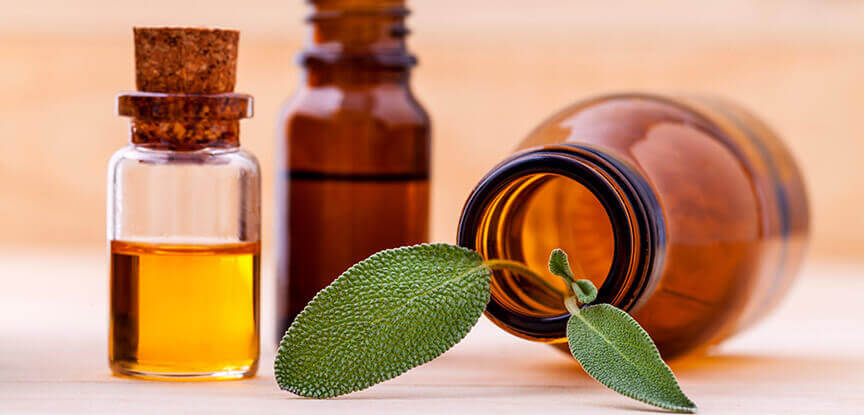
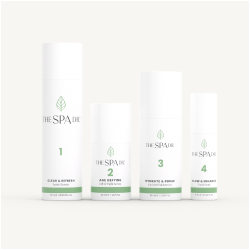
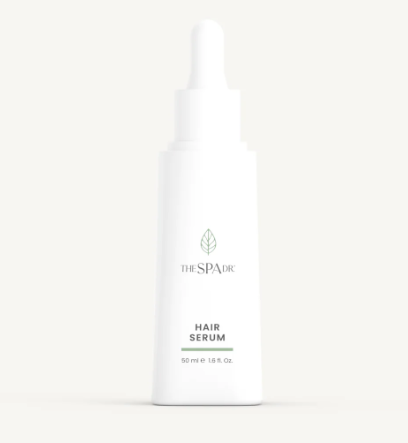
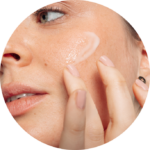

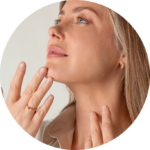

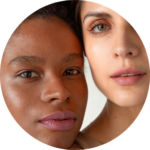
Reader Interactions
Hi. I have just turned 30 and really want to get rid of the spots that occur around my mouth/chin area. Which oil would be best to treat the scars around this area but also help with the spots? At the moment I used tea tree oil and have also just started using apple cider vinegar.
Hi Katie. It’s hard for me to know what these “spots” are. It might be best to first get a diagnosis from your dermatologist or GP. External use of Vitamin E and Comfrey are great for healing scars.
Thank you for your reply. I’ll book an appointment with my GP. Thanks for the tips for the scars. Loving your podcasts- thanks for sharing your knowledge!
Hello.
I liked Dr Cates’ special I saw on my PBS station in the northern VA area.
I would like to comment/add that I have had acne – mild to moderate – since I was about 12, and I am now 48. Sigh. I have always taken good care of my skin (neck and some face sunscreen daily since I was 20, some sort of retinoid on and off at night on my face, neck, sometimes my hands over the decades, and more often now on my arms, thighs, ab area…lol), so no wrinkles really, no dry skin. Although not as oily as it used to be. I am more of a sagger than wrinkler. And I am thin so my face is a bit thin. In recent year or two I have started to get more natural in my skincare as I have adrenal fatigue and I want to avoid negative ingredients/chemicals that may be small enough or able to penetrate my skin and act as endocrine disruptors. Between early menopause, a stressful job, and adrenal insufficiency I have enough endocrine system disruption…lol. I am also a former chemist with a MS, so I am not unfamiliar with chemicals and skin care in general.
I will add that even I have learned things in recent year or two about my skin and its changes, including how important skin pH is, and also that we don’t have to be afraid of oils – it’s just that acne prone people have to be very careful about the oils we use on our faces. I saw on a blog called Minimalist Beauty (lovely young woman named Dawn Michelle) that oils higher in linoleic acid than oleic acid work better in general for acne prone people. She gives a link to a study done in 1986 as to why that might be. It still takes some trial and error, but it seems to help with me, and worked great for her. Cross reference that list with a list of oils that are generally listed as a 0-2 on a comedogenicity scale, and those seem to be best for acne skin. They keep skin pliable, deter transepidermal water loss, provide some oil soluble vitamins, and antioxidants, and may help with skin pH. I am very wary of coconut oil on my face, same with olive oil. They are great for other stuff, and body, but be careful on the face, unless as maybe a zit spot treatment. The ones that work best for me so far are evening primrose oil, rose hip see oil, grape seed oil, hemp seed oil (refrigerate it), a few others. And the source counts – is it from a really healthy plant? Organic? Cold-pressed or cold processed? You don’t want the beneficial aspects of the oil to be ruined by added chemicals, or too much heat that will denature or destroy the polyunsaturated bonds.
I also love lavender oil and tea tree oil (essential, as in essence), but only as MAYBE occasional zit spot treat full strength, otherwise if you want to use them more often dilute significantly with the above oils, called carrier oils, or they can irritate and break you out if used too often.
I’m not a doctor or anything, just figured I would share what I have done and what I have learned. 🙂
Oh and I totally agree – beauty and health are synonymous and are an inside out and outside in thing – diet and supplements are essential, especially as we get older. As is a good healthy mindset and outlook.
Thanks to all who read my long comment. 🙂